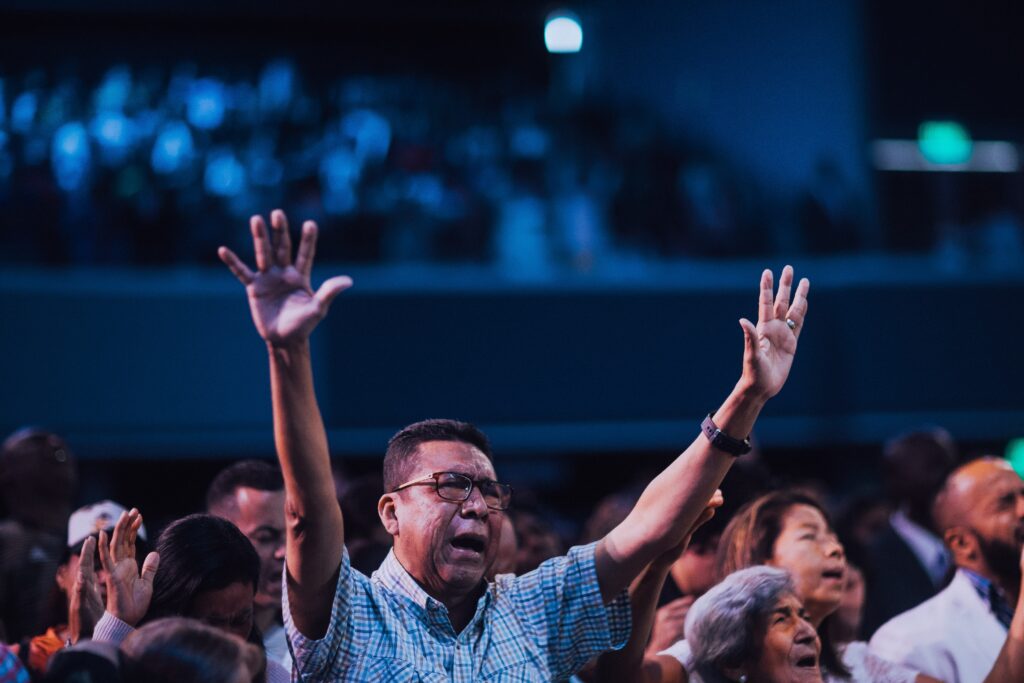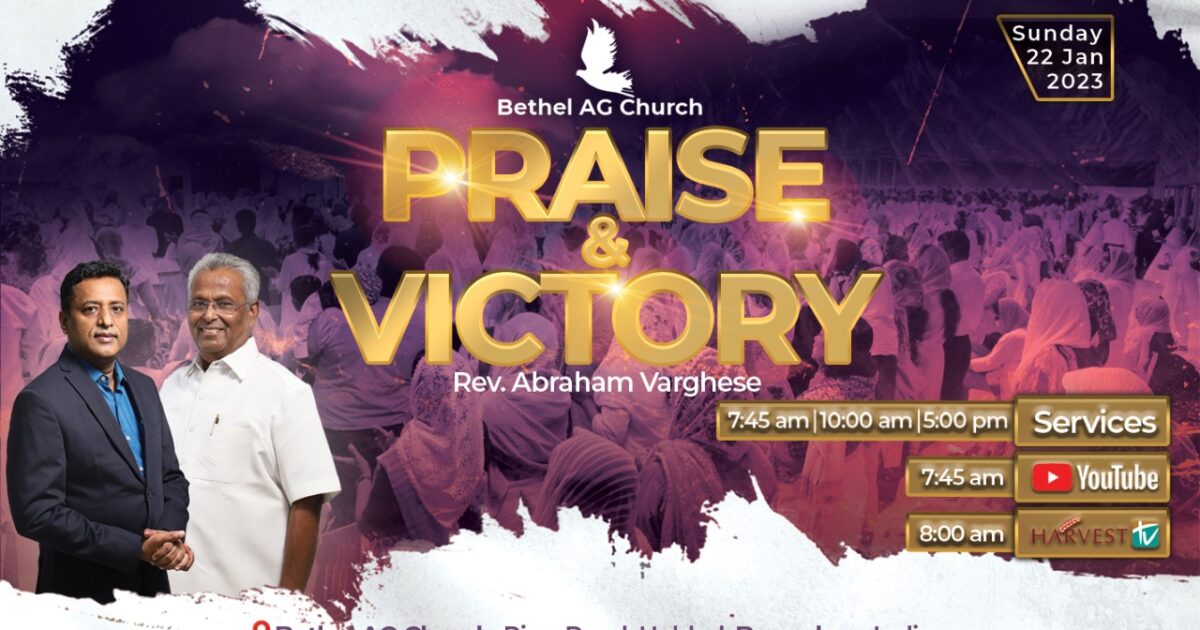“They looked unto him, and were lightened; and their faces were not ashamed” (Psalms 34:5 KJV)
Praise and thanksgiving, being the
essence of meditation and prayer brings us closer to God, enabling us to
channel His power to operate in our life. The bottom line of prayer is
praise- the song which we shall endlessly be signing all through
eternity. Reinstating the praise life of Eden-the reason for which we
are called and saved by the precious blood of Jesus,equipping us to
praise Him and worship Him.
Praise, a joyful recounting of all God has done for us, reflects either in visible or in audible actions.
It is closely intertwined with thanksgiving as we offer back to God.
“Now unto him that is able to exceeding abundantly above all that
we ask or think, according to the power that worketh in us” (Ephesians
3:20)
Christ transforms us from the inside out and His power translates into our lives, the pure manifestation of His indwelling. For increased spiritual power and answers to prayer, we need increased recognition of the indwelling of Christ.
God responds in ways unexpected. Saul’s life changing encounter with Jesus on the road to Damascus reflects His heart to save the world lost without Him. On the island of Patmos, the Apostle John saw Jesus, in a vision: eyes like fiery flames, His head and His hairs were white like wool, his feet like fine brass as if they burned in a furnace and His voice, the sound of many waters. As he couldn’t stand in His glory, John fell at Jesus’ feet and was taken through a near to death experience (Greek: pipto). The release of God’s power happens in these divine encounters, as it operates in the time of praise. God’s sovereign will is clearly manifested in the resurrection of Jesus. In the absence of praise, God’s power is released into the tomb to raise Jesus from the dead.
Word of God reminds us how the Omnipotent God partnered with Moses to release Israelites from captivity.
Still praise stands as a powerful tool to release God’s power and it is the key to recieve answers from the Lord. When Paul & Silas found themselves in jail in terrible condition, having been severely beaten, bleeding for the cause of Christ, they began praising God out loud. In spite of being in that terrible condition, they were praising God so loud that other prisoners were listening in (Acts 16:25-34). It is marvelous to see how their praise invited God’s power into the condition they were in and freed them.

Different patterns of praise: There are seven Hebrew words in the Bible that are translated as praise.
‘halal’ being the root word for hallelujah, it means “to praise, celebrate, to be boastful. Halal praise expresses our love for God and who He is and celebrates His goodness in our lives. As we embrace His love and deliberately choose to delight in the Lord alone, forsaking the worldly pleasures, God’s power resonates in our lives. Let’s cease to be self-conscious of what others might think and praise God with whole heart, being consumed by His love!
‘Barak’, kneeling in reverence or bending at the waist as a sign of submission, is another act of praise. Abraham, Moses, David and Elijah bowed down when they presented themselves before God.
“Come and let us worship and bow down; let us kneel (barak) before the Lord, our maker” Psalms 95:6
Emotions being gateway to the spiritual realm, often music played during worship acts as a catalyst for invoking the emotions towards the Almighty. ‘Zamar’, in the Bible, reminds us that God loves instrumental praise.
“But now bring me a minstrel, and it came to pass, when the minstrel played, that the hand of the Lord came upon him” (2 Kings 3: 15)
When instruments are played in adoration of His works, power is released into worship, opening up our spiritual eyes and allowing the Spirit of God to touch the hearts.
“But thou art holy, O thou that inhabitest the praises of Israel” (Psalm 22:3)
“And he has put a new song in my mouth, even praise (tehilah) to our God: many shall see it, and fear, and shall trust in the Lord” (Psalm 40:3)
Psalmist pours his heart out, how the presence of God filled his heart on praising Lord by ‘tehilah’, singing hymns in adoration, especially new songs from heart.
Do I use my singing voice to bring praise to God?
“Therefore, I urge you, brothers and sisters, in view of God’s mercy, to offer your bodies as a living sacrifice, holy and pleasing to God-this is your true and proper worship” (Romans 12:1)
‘Todah’, extending our hands in adoration and thanksgiving, remains the simple way to thank God and praise.
“One generation shall praise (shabach) thy works to another, and shall declare Thy mighty acts” (Psalm 145:4)
Giving a loud shout of praise to God (shabach), causes seasons to shift. Joshua 6 portrays the great example of how people shabach destroyed the walls of Jericho. Sometimes all it takes is a loud shout of praise to break walls in our lives!!!
‘Yadah’ describes moments of worship with raising of hands. In Exodus 17, when Moses’ hands were lifted in air, Israel was prevailing in war physically and spiritually as the Lord fought the battle for them. Moses extended his hands and the first plague turned river Nile to blood, and caused the ‘crowding of frogs’ to show the power of the God of Israel (Exodus 7:12, Exodus 8:5-6, Exodus 9:10). Extended hands bring forth victory on surrendering to the Lord, praising His majesty and his greatness.
God loves all forms of praise and worship, each of them designed to connect us with the creator on different levels. That’s what the seven Hebrew” words for praise are all about!
“Praise him for his acts of power; praise him for his surpassing greatness” (Psalm 150”2)
Praise be to God!!!!



No Comments